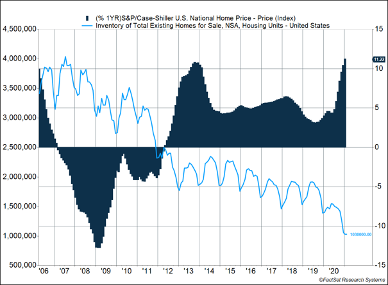April 7, 2021
Dear Friends,
2020 was a year we will never forget. Aside from a global pandemic, whoever would have thought that in such a short period of time we would have experienced such a quick bear market and then the ensuing bull market. We share our seven lessons that could help you make better decisions the next time the markets become unsteady.
1. Broaden Your Portfolio
The market is unpredictable, which highlights the importance of having a diversified portfolio. Diversification won’t protect you from losses, especially over the short term. But it should smooth out your ride in the long run. Spreading your assets among a number of investments will keep a downturn in one of them from tanking your whole portfolio. For example, now that technology has run up and market breadth is increasing, should you broaden your portfolio to take advantage of opportunities elsewhere?
2. Save More for Retirement
A well-funded retirement plan will inspire confidence and, ideally, provide something left over for your children so they can start building wealth on their own. And, you can’t make money unless you have money invested! That’s the magic of compounding. At TFG, we believe every client should have a financial plan, as everyone needs a road map.
3. Put More Money into Investments
For those who suffered financial setbacks during the pandemic, saving has been tough. But overall, Americans have been putting away more money as they stay home and spend less. Don’t waste the opportunity to put your money to work, particularly if it is earning close to 0% in a money market.
4. Keep Your Credit Healthy
A healthy credit history will help you secure the best interest rates on loans and get lower insurance premiums.
5. Recheck Your Insurance
Insurance doesn’t help you build wealth, exactly. But it does protect your assets. Think of insurance as risk management. Without adequate coverage, a fire, car crash, or health emergency could decimate your savings or push you deep into debt. Life insurance helps ensure the financial independence of your loved ones if you die, and don’t forget long-term care insurance which can provide all kinds of benefits.
6. Protect Your Legacy
Having an estate plan is important for everyone, but it’s even more crucial as you approach retirement. Tax laws have changed, so all estate plans should be reviewed for that reason alone. And, you tend to have more assets at this stage of your life, and you’ll want to be certain that your spouse and family will be well taken care of if anything happens to you. Without a will, state law dictates how your assets are distributed after you die.
7. Have a Liquidity Fund
The rule of thumb is to save at least 3 to 6 months worth of living expenses in a savings account. But if you’re the sole wage earner in your household, it’s wise to squirrel away 6 to 12 months’ worth of expenses. Alternatively, if you want to avoid stashing money in a bank account due to the low interest, then make sure you open a line of credit so you have access to liquidity in case of a “rainy day.” The backup money will serve you well not only if you lose income but also in case of a large, unexpected expense, such as a car repair or medical issue that racks up big bills.
Remember building wealth helps you reach your goals as well as survive setbacks such as stock market corrections and bear markets, recessions, health emergencies, and job loss.
If you have any questions, please reach out.
Debbie


